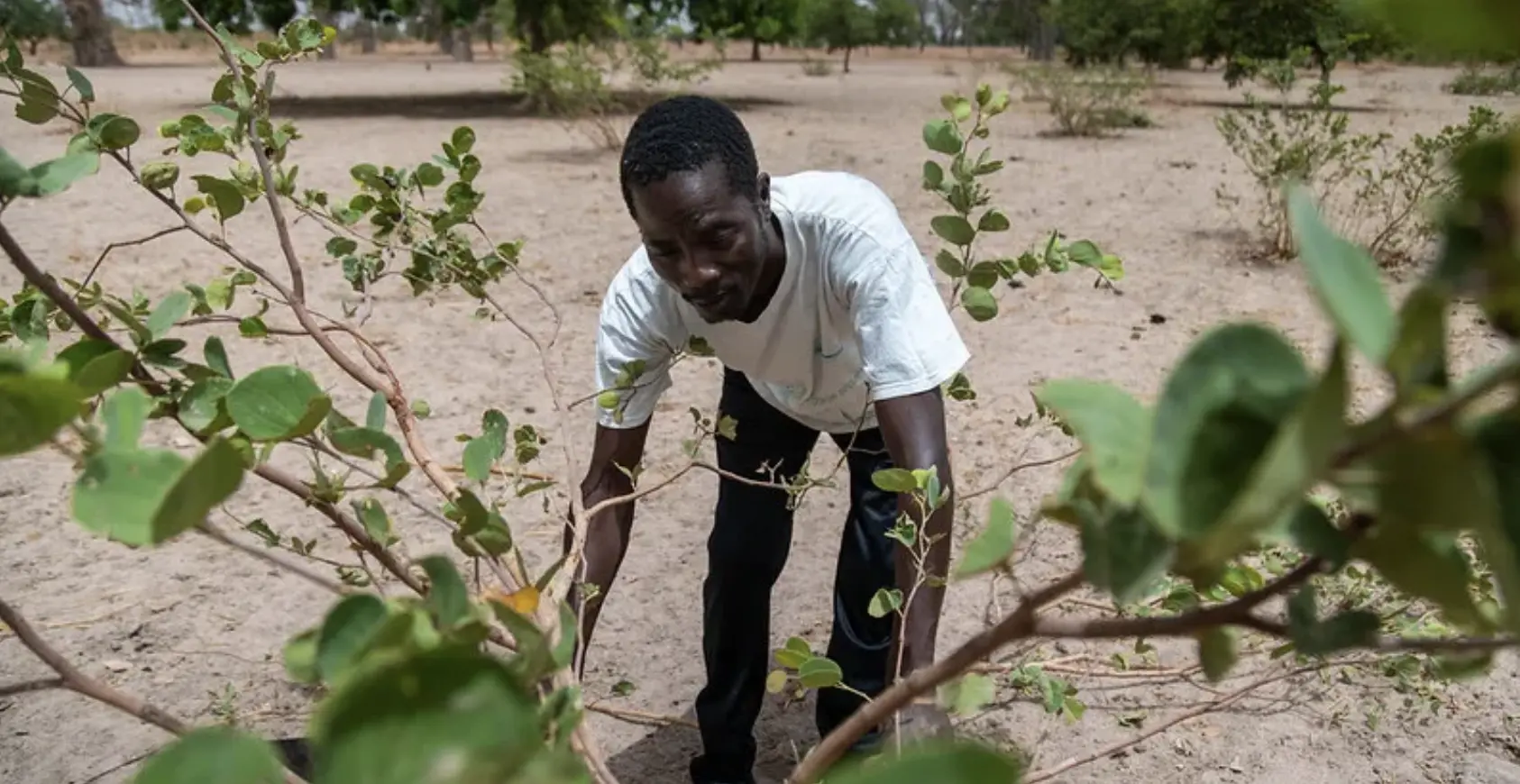Opportunities, obstacles, and collaborative pathways for sustainable agriculture
The African continent faces a number of complex challenges related to food security, climate change, and the degradation of natural resources. In response to these issues, agroecology is emerging as a promising and viable holistic solution that integrates ecological principles into food production systems.
In contrast to conventional methods that often rely on intensive chemical inputs, agroecology aims to create more resilient, productive, and equitable food systems. By exploring farming practices based on natural cycles and community participation, agroecology contributes to biodiversity preservation, all the while combating soil degradation and improving the quality of life for rural communities. As such, it’s got clear potential as a catalyst for positive change that could lay the groundwork for long-term sustainable agriculture in Africa.
As part of the Agroecology TPP’s Viability project, launched in 2020 with funding from the French Ministry of Foreign Affairs, an in-depth study on the viability of agroecological practices was undertaken in eight African countries – Burkina Faso, Ethiopia, Kenya, Madagascar, Malawi, Senegal, Tanzania, and Tunisia. The project is coordinated jointly by the French Centre for Agricultural Research and Development (CIRAD) and the Center for International Forestry Research and World Agroforestry (CIFOR-ICRAF).
On 5-7 December, 2023, the partners held a workshop in Saly, Senegal to disseminate key results and recommendations from the project, and to integrate that information into policies, strategies, investments, as well as ongoing projects, programs, and initiatives. The event brought together experts, researchers, farmers, members of civil society, and policymakers, all of whom are committed to promoting sustainable agricultural practices across the continent.
The three-day workshop revolved around a scientific forum, a science and civil society dialogue, and discussions between scientists and policy makers. It was followed by a field visit to the Agroecological Living Landscape (ALL) of the CGIAR Initiative on Agroecology, one of Agroecology TPP’s integrated projects, where delegates visited a goat breeding and milk processing centre, and a community center that works to promote sustainable agricultural development and includes a bakery that sells a variety of locally-produced healthy breads.
The exchanges allowed for debates on the project’s findings, and discussions on key messages to be shared with key stakeholder groups to support agroecological transitions in Africa and beyond. “The Viability project has generated a significant amount of data; the key here is to examine the central messages that will guide actions for all stakeholders,” said Ric Coe, a principal scientist at CIFOR-ICRAF, underscoring the importance of drawing concrete lessons from the initiative.
Discussions highlighted the complexity of agroecological viability, which relies on delicate interaction between diverse factors, and careful consideration of the multitude of environmental elements that farmers may choose to integrate into their agroecological choices. To this end, Nadine Andrieu, a researcher at CIRAD, emphasized the absence of a single method for assessing the viability of agroecological systems, and said that method choice should be determined by the specific goals, available resources, capacities, and values. “This decision must integrate social, environmental, economic, and production factors, as farmers base their agroecological choices on these essential elements,” she said.
Quantifying ecosystem services, a common research practice, often fails to depict the complex roles of environmental aspects in agroecological practices, said Andrieu: a one-size-fits-all approach does not apply, and the diversity of environmental factors – often specific to local contexts – cannot be captured by a few universally-measured indicators. Similarly, Mariam Sow, the director of Dynamics for Agroecological Transition in Senegal (DyTAES) and executive secretary of Environment and Development Action for the Protection of Landscapes (ENDA Pronat), advocated for a pluralistic approach to scientific research that takes into account community concerns.
During the workshop, researchers, civil society, and policymakers all acknowledged the crucial role that labour plays in the agroecological equation. However, they also agreed that the complexities surrounding the impact of agroecological transition on working time require more nuanced exploration. The types of workers engaged in agroecological transition practices vary from place to place and are influenced by organizational strategies and gender norms at the plantation level. Beyond resolving labor constraints, it is also necessary to consider broader dimensions of the changes such a transition may incur, including labor intensity, remuneration, personal fulfillment, satisfaction, and the well-being of workers.
A consensus emerged for policymakers to adopt tailored strategies to support agroecological transitions at the sub-regional level. The recognition that there is no ‘universal agroecological package’ underscores the importance of adapting political and institutional instruments to the diverse contexts of agroecological transitions. This requires favorable agricultural policies, appropriate funding, and ongoing capacity building for farmers.
Stakeholders also converged on the importance of holistic approaches that consider environmental, social, and economic dimensions in the agroecological transformation of livestock and pastures. Collective efforts from policymakers, civil society, and researchers are needed to shape sustainable practices that respect shared resources and contribute to the resilience of these vital landscapes, they concluded.
Overall, the workshop drew into sharp relief the opportunities and challenges the continent faces in its pursuit of sustainable agriculture. These discussions will inspire further concrete action and collaboration to realize the transformative potential of agroecology in Africa – not as a uniform path, but as a dynamic collaboration to help forge a more resilient and sustainable future for agriculture.
Explore some of the video presentations, including Fergus Sinclair’s keynote:
The blog is written by Gilberte Koffi and is also available on Forests News.
Photo: Samba Seyk, a farmer from Ndiawara in the commune of Diockoul Mbelbouck, Senegal demonstrates farmer-managed natural regeneration, an agroecological technique to improve soil organic matter and fertility. Credits: Kelvin Trautman/Regreening Africa

